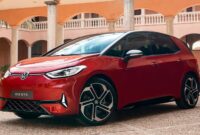As automakers invest in and develop electric vehicles, they’re reimagining more than powertrains. For many brands, battery-electric vehicles will also introduce new, sustainable materials for use throughout the vehicle. A new design study from Callum gives a peek into such a future, using a variety of everyday waste products to create a tasteful interior for the Porsche 911 restomod.
Callum looked beyond the typical materials automakers use today and found an unusual waste material the company could one day use in a vehicle. The design firm identified coffee grounds, eggshells, red lentils, walnuts and rice as possibilities, using the waste in various ways throughout the 911 cabin.

9 Photo
The design studio consulted with green-tech company Ottan and found that eggshell mixed with resin can produce a smooth, opaque material with a glossy or matte finish. Callum uses it on the window switch trim. Adding walnuts to the mix increased the recycled content content from 78 to 84 percent.
Callum knows that out-of-date rice or lentils can be used to make transparent materials that are ideal for lampshades or illuminated switches. The design studio also uses coffee grounds, a flame retardant alternative to traditional plastics. Automakers can use the material for decorative trim.
Plastic is another material Callum uses, using a fabric called Camira made from marine plastic waste for the center of the seats. The company also uses Feline, a soft material produced from PET bottles, for the seat cushions. Sustainable materials come without a heavy penalty.
While a design study is just a concept, Callum is selecting materials that already meet or could meet automotive requirements by 2030. Callum’s next step is to test these materials in future projects. The design house has engineered a hemp/jute composite that buyers can choose from for its Barq EV scooter.
You could start seeing recycled coffee grounds and lentils in car interiors in the near future, as automakers are exploring such alternatives. BMW revealed the iVision Circular in 2021, a concept made from 100 percent recyclable materials, and plans to use recycled fishing nets in vehicles from 2025. Volvo is proud to highlight its push to use sustainable materials such as PET bottles and resin pine in the new EX90 , which contains nearly 110 pounds (50 kilograms) of recycled plastic and bio-based materials in the vehicle.



